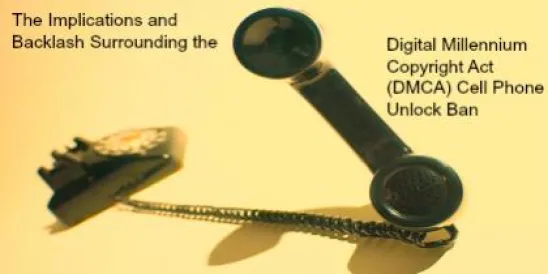Yesterday, a trio of Democratic Senators – Dianne Feinstein, Richard Blumenthal, and Amy Klobuchar – introduced the REAL PEACE Act. The Act proposes to eliminate the long-standing exemption of common carriers from the jurisdiction of the Federal Trade Commission and its enforcement powers. According to the Bill’s preamble, the exception needs to be eliminated because it limits the enforcement capabilities of the Federal Trade Commission with respect to illegal robocalling and spam calling.
Before getting into the substance here I’m sure you’re all wondering what REAL PEACE stands for. It’s the: “Robocall Elimination At Last Protecting Every American Consumer’s Ears Act”.
No, I didn’t just make that up.
And now you can add REAL PEACE to the pile of proposed litigation intended to combat “robocalls” including, ROBOCOP, Stopping Bad Robocalls Act, and TRACED (are these lawmakers just trying to top one another with these titles?)
But unlike its cohorts, REAL PEACE is trying to go after the problem by placing responsibility squarely on common carriers to prevent illegal robocalls and spam calls, and giving the FTC the ability to twist the arms of telecom companies to somehow make them do that. According to Senator Feinstein’s press release, “telecommunication companies should be doing everything they can to protect their customers robocalls,” and apparently the FTC needs more enforcement authority to “aggressively crack down on these calls and finally hold bad actors accountable,” which includes “investigat[ing] telecom services that play a critical role in enabling illegal robocalling.”
So exactly how does eliminating the common carrier exception under the Federal Trade Commission Act help combat the robocall problem? The answer is… not clear.
When the Federal Trade Commission Act was passed in 1914, it established the FTC, gave it broad authority to regulate unfair and deceptive practices, but exempted “common carriers” (which would include telecom companies) from its jurisdiction. This exemption has been whittled away in the courts, however. Most notably, the Ninth Circuit took a chunk out of it earlier this year when it held that the exemption didn’t apply to “activities that fall outside of common-carrier services.” FTC v. AT&T Mobility Ltd. Liab. Co., 883 F.3d 848, 851 (9th Cir. 2018). And now REAL PEACE proposes to take away the exemption completely so that the FTC can do more stuff to make telecom companies stop robocalls.
But here’s the thing. The Federal Communications Commission (FCC) already has the exclusive jurisdiction to regulate the common-carrier services provided by telecom companies, which would include the services abused by bad actors to make illegal robocalls and spam calls. In fact, that was partly the basis of the Ninth Circuit’s holding in FTC v. AT&T. The FCC gets exclusive jurisdiction over the common carrier services of telecom companies, while the FTC’s jurisdiction fills the gap by covering the non-common-carrier activities of those entities like website operation, video distribution, home security, etc. that they’ve expanded into since the act was passed over 100 years ago.
So I guess the thinking here is that if one regulatory agency can’t solve the problem then… just throw another one at it?
Between ROBOCOP, Stopping Bad Robocalls Act, TRACED, and now REAL PEACE, the Government wants to fight robocalls by requiring telecom companies to verify caller ID accuracy and let consumers sue them if they don’t (ROBOCOP), include devices that call from lists in the statutory text of the TCPA (Stopping Bad Robocalls Act), have the FCC implement a call authentication framework, put the TCPA on steroids, and get the CFPB, Department of State, Department of Homeland Security, and Department of Commerce in the mix on TCPA enforcement (TRACED), and now by expanding the FTC’s jurisdiction to somehow make the telecom companies stop the robocalls (REAL PEACE).
How much you wanna bet the next act is going to be called KITCHEN SINK?
At bottom it seems unlikely that throwing another regulator at the problem is going to do much. The FCC already has the ability to regulate telecom companies, and under the circumstances giving the FTC the same power seems unlikely to change anything. Besides, are the telecom companies the “bad actors” in this situation as the lawmakers that introduced REAL PEACE have suggested? That’s kind of like saying an auto manufacturer did something wrong when a car it made is used in a bank robbery. Or that the postal service is responsible when someone commits mail fraud.
No doubt, proper tools need to be brought to bear on the problem of spoofing and scam calls, and telecom companies undoubtedly have an important role there. And as we’ve covered on TCPAland and the Ramble, private industry is stepping in to provide those tools to consumers. As the leaders of those innovative companies have told us on the Ramble, they’re partnering with telecom companies to help provide consumers with such tools. These are all good and positive developments that stand to have a real impact on the illegal robocall/spamming/spoofing problem. But the willy-nilly expansion of regulatory authority probably isn’t the answer here.



 />i
/>i

